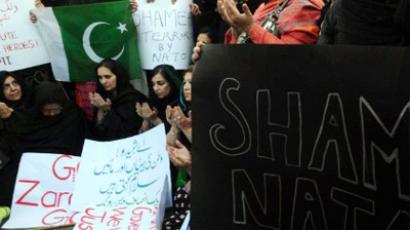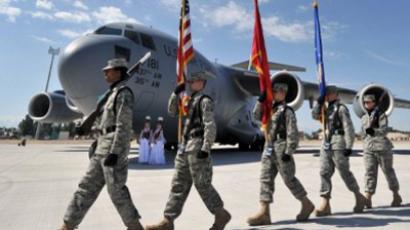NATO base blast: 1 dead, up to 70 injured in Afghanistan
A suicide bomber attack at the NATO coalition base in the Afghan Logar province has left at least 1 person dead and up to 70 injured.
The attacker used an explosive-laden truck to set off a powerful explosion just outside the entrance to the base on Friday morning, local authorities reported.The majority of those wounded are civilians, Logar’s health director, Mohammad Zarif Nayebkhail told AFP. Seven of the wounded are Afghan security guards from the base. Atiqullah Ludin, the local governor, said the deceased victim was an Afghan carpenter. “The suicide attacker wanted to ram his explosive-laden vehicle into the coalition forces base, but he was stopped at the gate and detonated the truck outside the base,” said local Deputy Police Chief Mohammad Abed.The Taliban has claimed responsibility for the terrorist act.In September, 77 US troops were wounded in a truck bombing which targeted a NATO base in Wardak province, which borders Logar. US officials blamed the attack on the Haqqani network, an Afghan Taliban faction, which Washington says has strong ties with Pakistan.There are currently 140,000 international troops in Afghanistan. The number is set to decrease by the end of 2014, but a substantial presence is expected to remain in an effort to train Afghan security forces.Sreeram Chaulia, professor at the Jindal School of International Affairs, believes the US is likely to stay on in Afghanistan even after 2014, now that relations with Pakistan have been rapidly going downhill. “Although there’s an argument that President Obama and his team are now moving towards an aerial-based security policy where they will have only counter-terrorism through drones and through helicopters, and that they don’t really want people on the ground occupying countries for a long time, the reality is that the Pentagon is pushing for the same old strategy where they hunker down and stay there for as long as they can,” Chaulia said to RT. “So this is going to mean that even after 2014, and especially this rancor between the US and Pakistan will mean, that it will become a justification for the United States to stay on much longer.”














